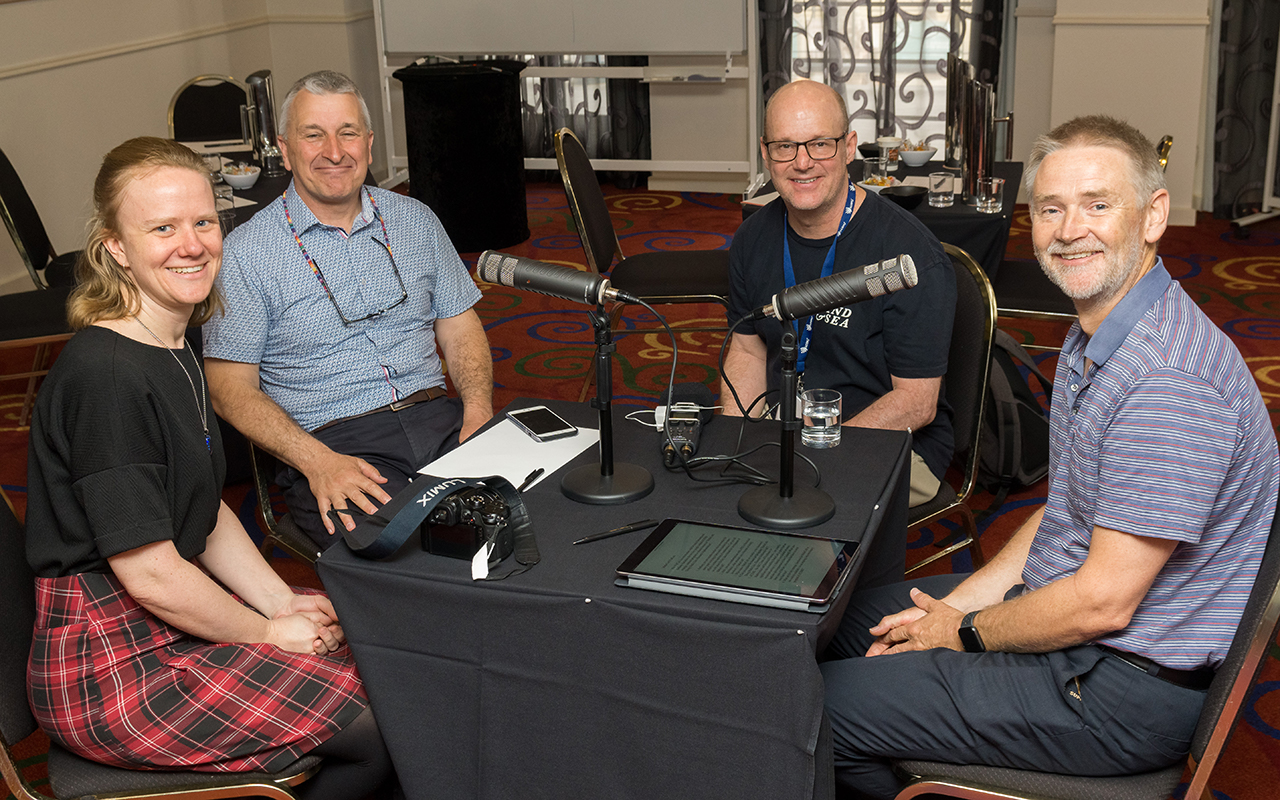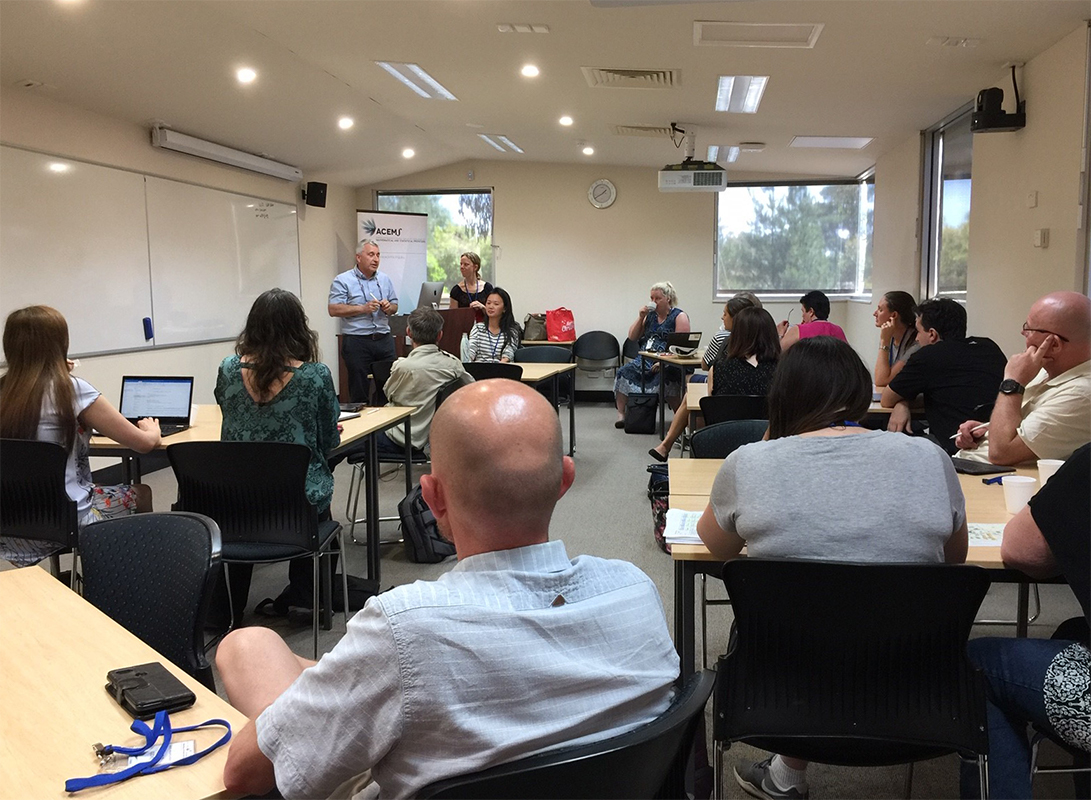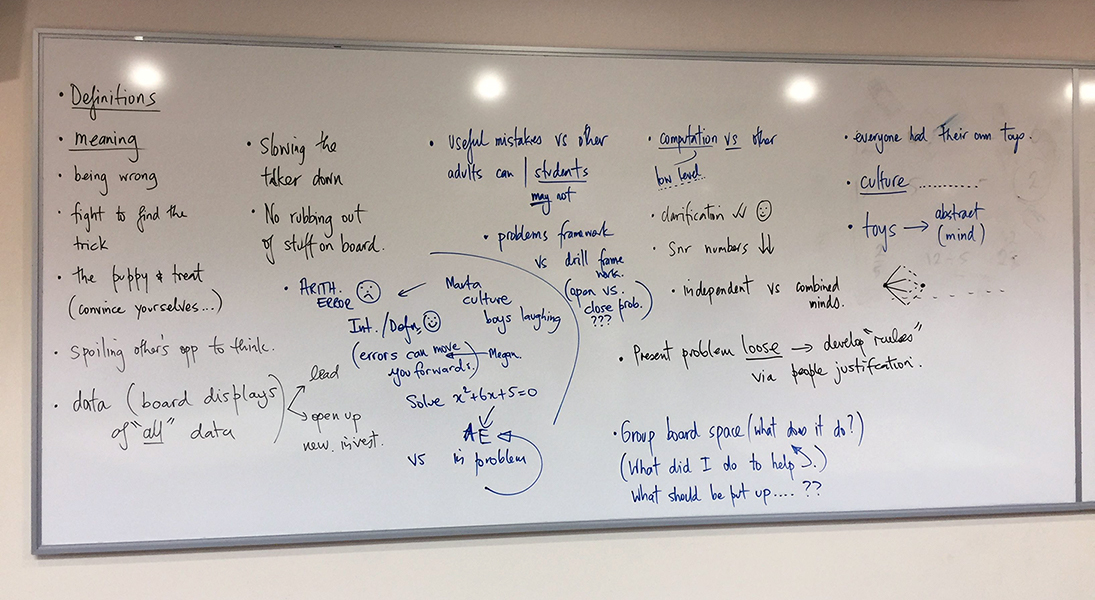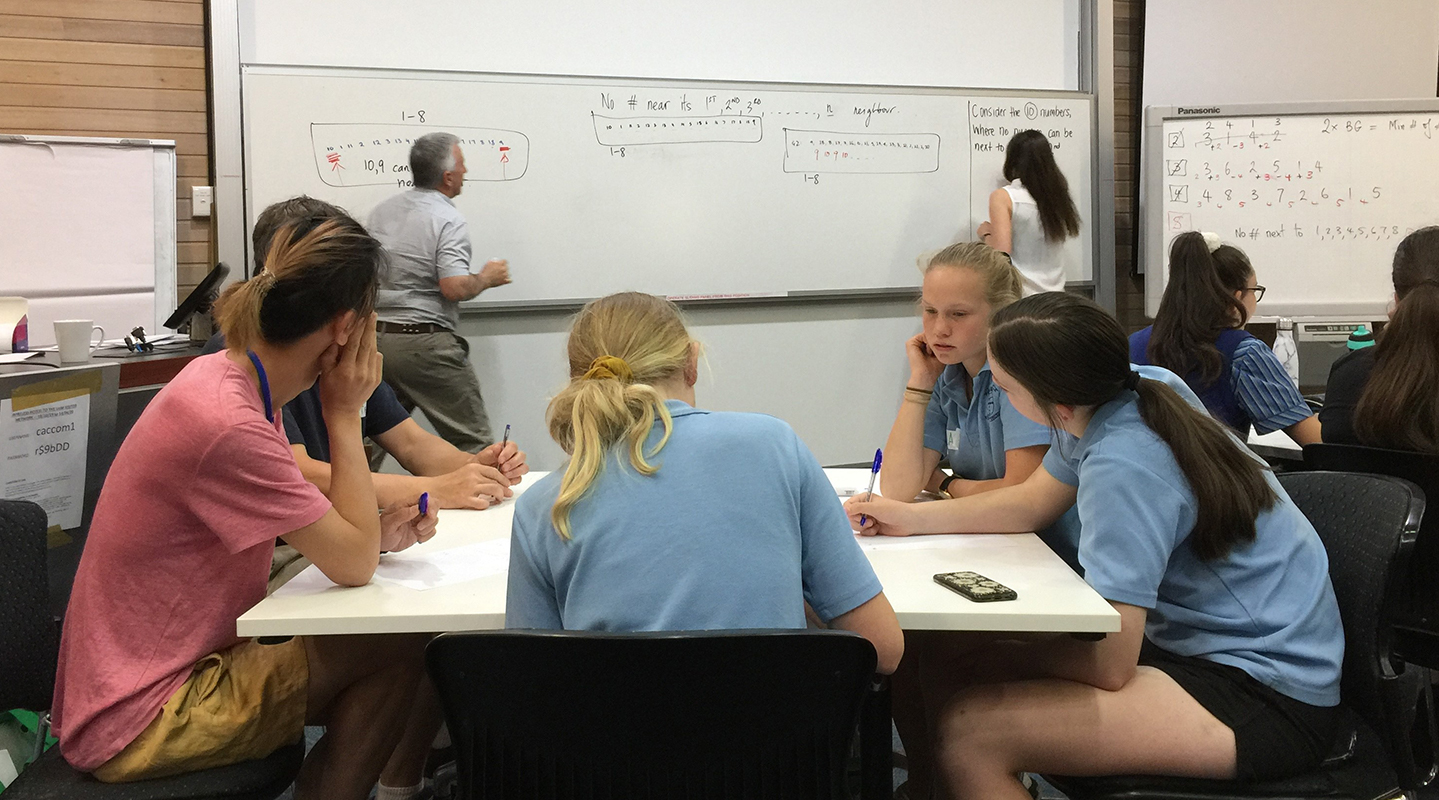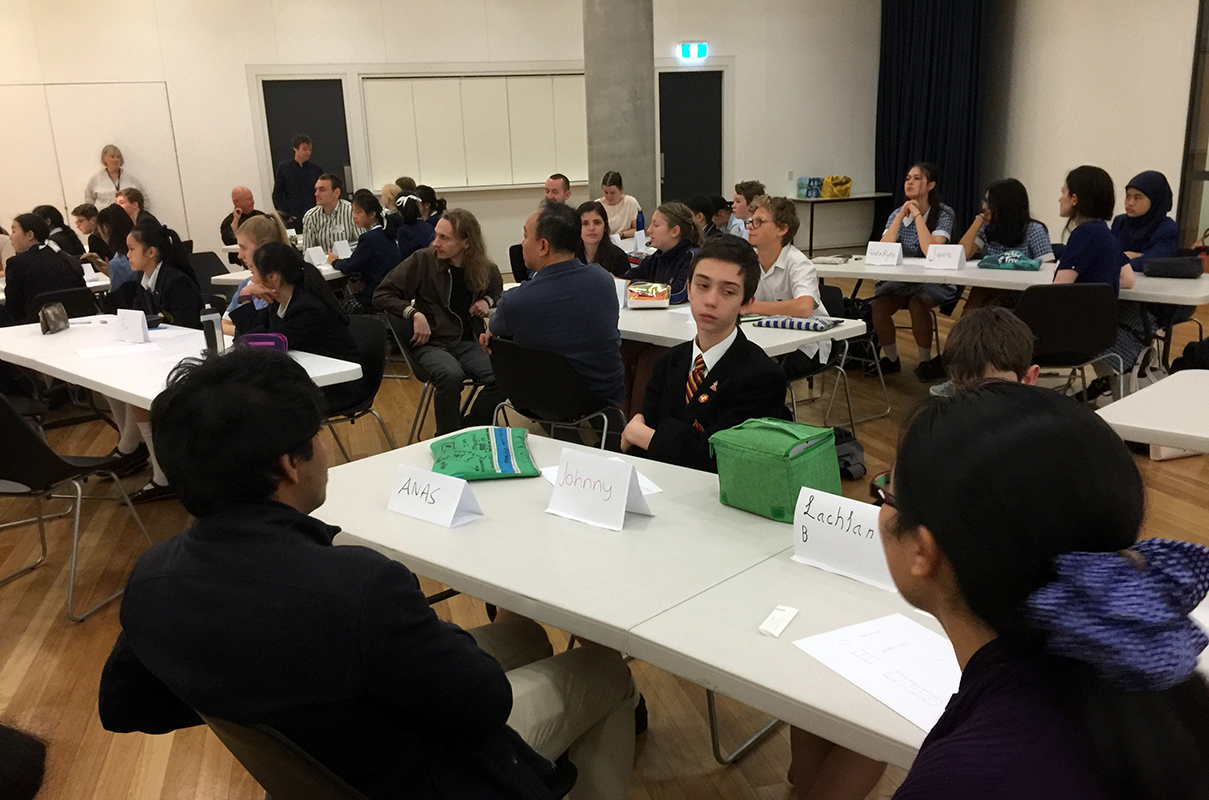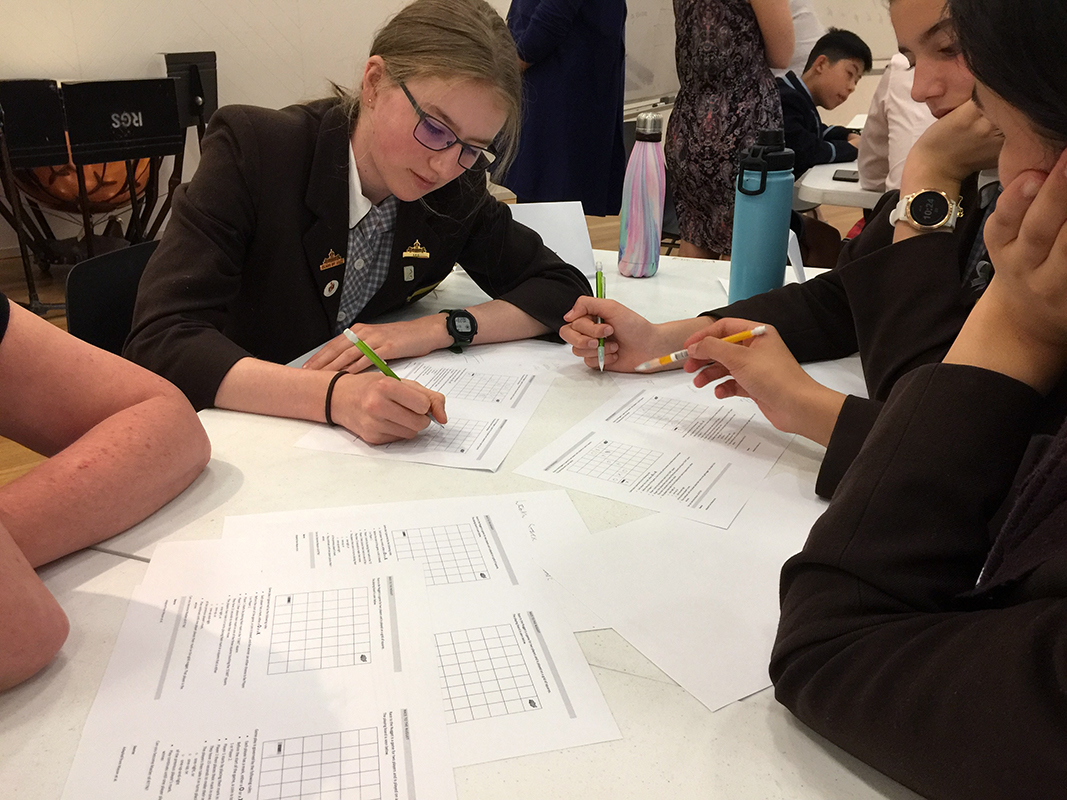
MATHSCRAFT: A new chapter in the story
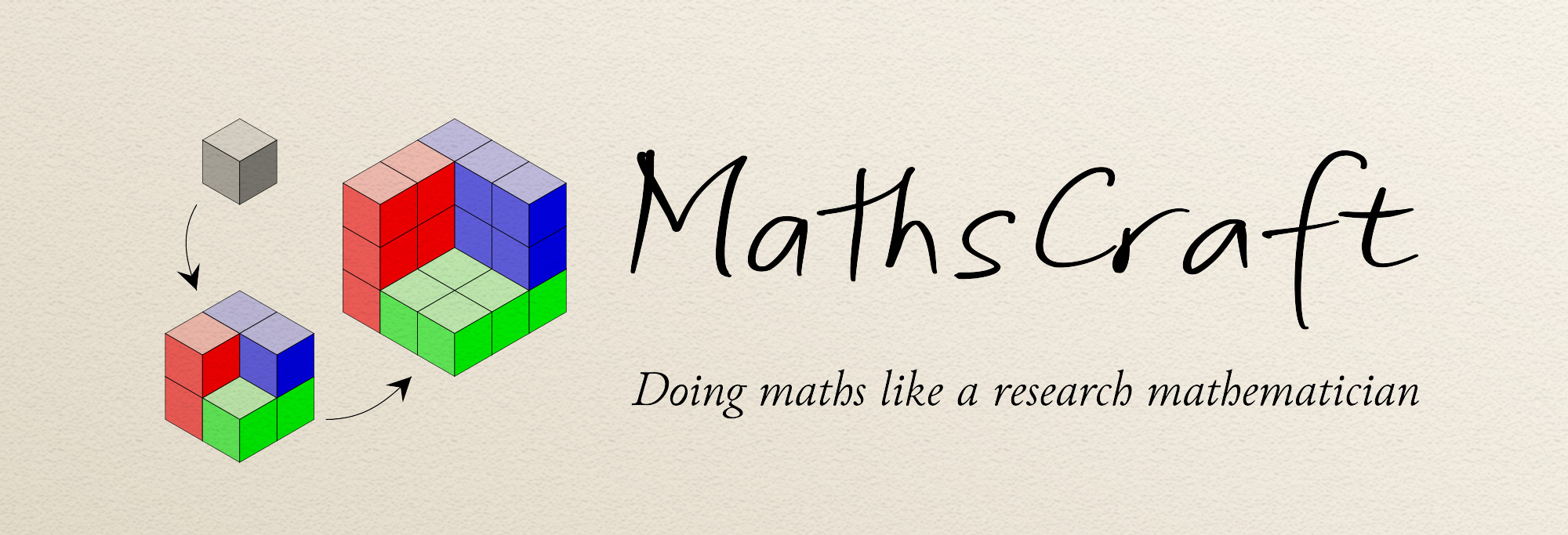
It was another year of impressive growth for MathsCraft, which is ACEMS’ strategic outreach program into the school community. In addition to running its regular series of three-hour student workshops, and its annual five-day teacher professional development workshop, MathsCraft trialled a pilot of a new supplementary curriculum.

Episode 19: Playing the Game of Maths
Guest: Anthony Harradine from Prince Alfred College in Adelaide, and Dr Anita Ponsaing, ACEMS’ Outreach Officer
Host: Prof Nigel Bean, ACEMS Deputy Director and Chief Investigator, The University of Adelaide
We introduce you to ACEMS' flagship outreach program, MathsCraft, which is designed to supplement what is already being taught in classrooms. MathsCraft allows kids to experience things like the creativity of maths, collaboration, having ideas, exploring those ideas, and coming up with new ideas and questions
ListenThe new MathsCraft Curriculum is a program designed for teachers to use in their classes as a companion to the Australian Curriculum. In 2019, 11 schools participated in the pilot curriculum trial, which includes six problems to work through, including an assessment problem. The assessment, though, is not based on the results the students get or the arguments they come up with, but rather how they behave mathematically while working on the assessment problem.
“All the stuff that the kids write on their piece of paper gets submitted.
The thing we most care about is their thought process. Did they have an idea? Did they follow it? Did they scrap it? Did they refine it? This is what we’re assessing,” says Dr Anita Ponsaing, ACEMS Outreach Officer.
Almost 300 students took part in the pilot program. ACEMS awarded a certificate of merit to every student who participated.
Teacher feedback from the program has also been very positive. Teachers indicated MathsCraft helped their students in critical areas such as their ability to:
- Explore mathematics
- Have independent ideas in order to explore, solve, create and understand
- Share ideas and collaborate mathematically
- Develop an appreciation for logical arguments
- Learn to build logical arguments
- Learn to reason in order to become sure of an idea, rather than relying on an authority
- Learn to write down what they are thinking
- Appreciate “dead ends” as a positive step in their adventure
- Develop their critical and creative thinking
- Develop their resilience and persistence
“From the feedback I’ve read so far, the coolest bit is the excitement of the teachers who genuinely seemed to have experienced something positive and different,” says Anthony Harradine from the Potts-Baker Institute at Prince Alfred College in Adelaide, and one of the creators of MathsCraft.
The plan in 2020 is to roll the curriculum out in Terms 2 and 3 of the school year. During that time, we ask teachers to find six sets of 100 minutes of class time. They can split those sessions if they want, for example, into sessions that happen once a week, or once a fortnight.
ACEMS first got involved with MathsCraft in 2015 by hosting several half-day workshops for students and teachers. Back then, only Anthony facilitated the events. In 2019 there were nine student workshops based in schools and run across Australia, including some as far away as Cairns and Charleville.
These workshops are now being run by teachers who have gone through our five-day teacher professional development immersive workshops. These PD workshops started in 2016, and in November 2019, we ran our fourth annual immersive workshop, at MATRIX in Creswick. Nineteen teachers from around Australia participated.
“They are an astonishing five days. As a teacher, you get to come out of everything you have to worry about – kids, lesson plans, assessments, or whatever – and you just get to do maths, and you learn or maybe re-learn and get reinvigorated. They have been a knockout,” says Anthony.
“It’s interesting to watch how the teachers’ attitudes evolve over the five days. At first, some are a bit uncertain. But after a day or two of working with the other teachers and working on a few problems and getting an idea of what we’re actually about, you see a shift. It's amazing," says Anita.
Our dedicated MathsCraft Alumni community continues to grow, and we hope to build this community with another program of professional development opportunities in 2020.
In the end, the MathsCraft program is designed to get students – and teachers – to use their mathematics to fuel interesting adventures, sparked by problems. Anthony says MathsCraft shows that there are many, many students who genuinely enjoy mathematical adventures when they are using mathematics with which they are operational.
“The sorts of problems that we’re putting in front of kids often result in kids shocking themselves when they have an independent thought or ideas. It’s a joyous moment to witness and they grow from such moments,” says Anthony.
If you’ve ever watched a MathsCraft session play out, often the problems are left unsolved. The main focus is to explore the ideas kids come up with when presented with a problem.
“We’re about the story and how that story takes place, with all of its pitfalls and all of its beauty,” says Anthony.
And when it comes to the MathsCraft program, we can’t wait to see where the story takes us next.
Feedback from teachers in the 2019 MathsCraft Curriculum pilot program
"[It] was exciting to see that once they realised it was about offering suggestions/observations and questions how the level of interaction increased. Their usual teacher commented on how she liked the process of testing, refining, and moving forward."
"The [students] have developed resilience and risk-taking and the idea that there may not be a final, and only one, answer. What a great project."
"My students are doing a compulsory investigation now, and I am already seeing the benefits of the MathsCraft program – they aren’t complaining about being lost so much, and they are careful to see that a pattern always holds, not just for a few cases – MathsCraft fruits!" [Sent one month after the completion of the curriculum]
"[We] could not bring ourselves to clean the board. The girls left with a real buzz, and we could hear them still saying: 'but what if …'"
"I loved it, despite the fact that I had a really difficult class ... [with a] generally negative attitude to mathematics ... I really liked the growth that I saw in the students over the sessions – they learned to collect data and make mathematical observations, as well as embrace the 'dead ends' as being valuable things to learn from. They rose to the challenges I gave them many times and were generally engaged with the process."
Participant Feedback from five-day Teacher PD Workshop
"[I gained] a better understanding of what thinking/working like a real mathematician involves."
"The chance to work with and observe research mathematicians working on these problems and to hear their thinking is invaluable."
"[I have learnt that] creativity primarily uses well-developed skills."
(What did you learn about mathematical research?)
"There are a lot of pathways. You don't know their potential unless you explore and practise exploring. Some lead to dead ends. Some lead to something interesting. Some lead to the unknown. That is an exciting place, and these people (research mathematicians) love to go down the rabbit hole. We got to be Alice this week as well."
(What were the best features?)
"Having mathematicians working with you, seeing how they approach problems and realising that it's not that different from the rest of us. They just know more 'stuff'."
"I loved seeing the mathematicians struggle with problems, work together, get things wrong etc. Much less intimidating than the perception I had in my mind."
"Problems can be given in a way that models how to discover. This, for me, is the heart of the immersive workshop."
"My understanding of how mathematicians work has been clarified. I also now have a greater understanding of how MathsCraft emulates this experience for students."
MathsCraft Gallery
